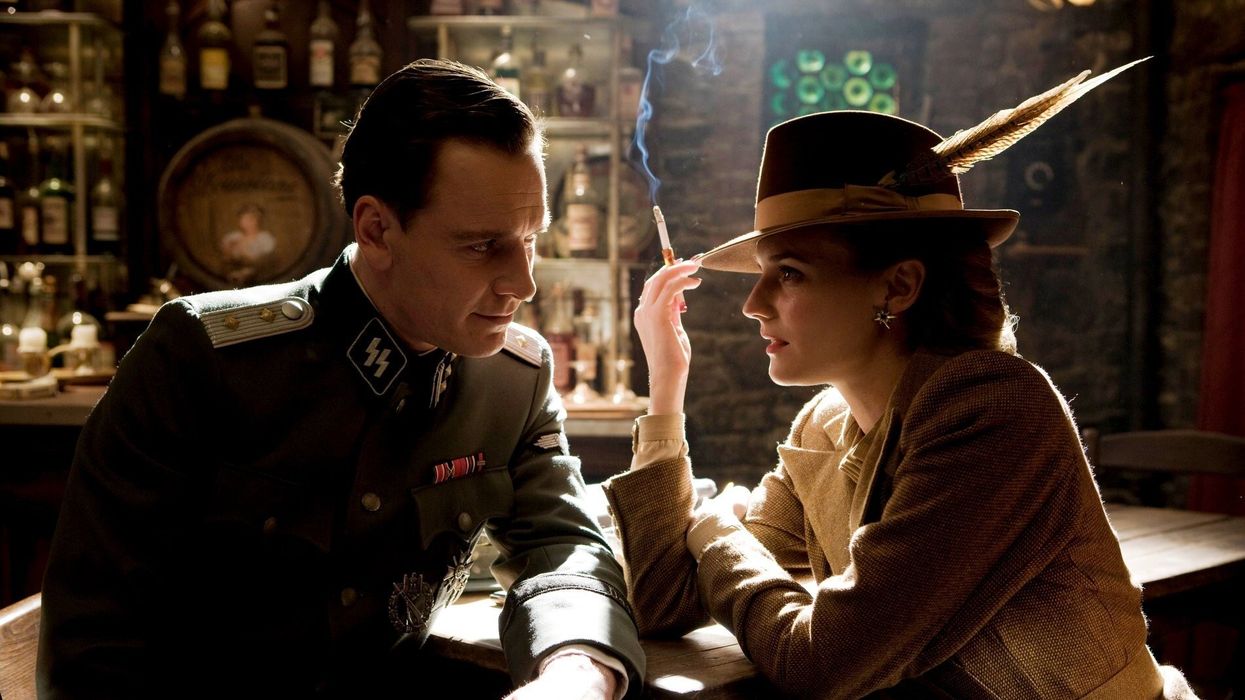10 Movie Writing Tips Inspired by Quentin Tarantino's 'Inglourious Basterds'
Come on a screenwriting journey with Quentin Tarantino.

I have this fantasy that when Quentin Tarantino retires from directing, he will use some of his free time to become a film professor. But I'm not sure that has any likelihood of happening, so I guess I'll have to settle for these compilation videos where people assemble all the advice Tarantino's ever given about writing. In this article, we're going to look specifically atInglourious Basterds, and how that movie is really perfect to learn from as a writer.
Check out this video essay from Outstanding Screenplays, and let's talk after.
10 Movie Writing Tips Inspired by Quentin Tarantino's Inglourious Basterds
1. Contemplate a lot of different ideas before you commit to a project. It’s like falling in love. You flirt and date a lot of different people, but then you meet the right one.
There are always lots of ideas you have. Big ones, small ones, and probably various genres. But the ones you love—love so much that it would kill you to see someone else write them—those are the ones you should commit to writing.
2. If you wrote something and it doesn't work for any reason, put it away for some time. When you come back to it, take the best parts and write a new story.
I am a big advocate for putting ideas away for a bit. Sometimes, with age and new life experiences, you can crack that spec that never quite came together for you. And sometimes, you can rip scenes out and cannibalize it for other ideas.
3. Think long and hard before you decide whether to write a TV series or a movie. Seeing your screenplay come to life in a movie theatre is still a once-in-a-lifetime experience.
There is no real reason to pick TV or movies today, as streaming has begun to blur those lines. But each takes different storytelling techniques and decisions. Whatever you choose, pour yourself into it, understanding the work it will take to get a finished product at the end.
4. Make sure your story is plausible. You can make up whatever story rules you want to. But once those are set, the story must be credible within those rules.
Logic is highly important at the center of your movie. You're doing the worldbuilding and setting the rules, but if you violate them, then you tear down the logic of your story. Set the boundaries inside the story. Then work within them to amaze us.
5. Let your characters live. Discover them as you’re writing them.
That is the process Tarantino used for one of his best characters ever written, Hans Landa. Spend time with your characters. Really get to know them. You need to understand how they think about the world and how they feel, so they come across as real.
6. Always keep all the characters you write saved separately in your database. You can always use a complete character or part of a character for another screenplay.
I think this is an ingenious idea. If one idea is not working for the scenario in one script, be okay opening another idea and seeing if these people can populate the world. Sometimes, you can use mirror images of characters from different scripts. Like Tarantino did with Reservoir Dogs and Pulp Fiction with the Vega brothers.
7. Create a detailed backstory for the character, but don’t reveal everything to an audience. Let the audience fill in the blanks themselves and create their own movie.
It's incredibly important to develop your characters so you understand their motivations for everything. You don't have to put it all on the screen, but it will be useful when you cast someone, and they need to embody the role.
8. Think of suspense as a rubber band. As long as the rubber band can stretch, the more suspenseful it is.
The opening scene in Inglourious Basterdsis more suspenseful at 22 minutes than it would be at 8. That's because we have characters and a situation that's keeping us on the edge of our seats. We're thrilled as we agonize over when the band will snap. Tarantino knows this, and takes it as far as possible.
9. If the scene you’re writing is working and keeps holding up, and it ends up being 40 pages long, you should keep it in the movie.
That’s what Tarantino did with the basement scene in Inglourious Basterds. There are lots of "rules" in screenwriting and all of them are bullshit. People want scenes to work. They are not worried about how long they are or how many characters are in them. They want to be entertained. Never shy away from that.
10. Always try to surprise yourself with your writing. The best way to keep your writing fresh is to always start at square one, like it’s your first screenplay.
Challenge yourself. If you get good at writing one thing, try something else. Always hone and sharpen your skills. Make yourself work for it. The best ideas and scenes come from the struggle. They come from you striving to be your best. Don't back down.
EXTRA TIP—It’s hard work to go to that blank piece of paper and start from scratch every single solitary time. But it’s more rewarding to write your own movies. It’s the only way to keep your voice.
Your only goal should be that the reader never puts the script down. Use your voice to entertain and clarify the story for them. Make sure your beats keep people interested and hooked on the plotlines. Deliver something exciting that feels like it could switch or entice people at every turn.
Now go get writing!
Source: Outstanding Screenplays













